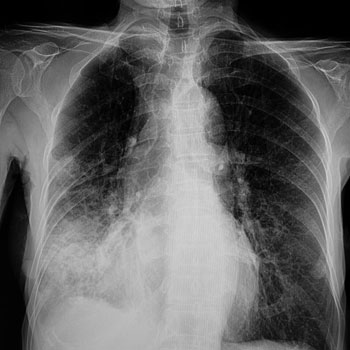Providing postpartum care, tackling CAP, and more
This issue addresses maternal mortality, community-acquired pneumonia, and conference coverage from the Society of Hospital Medicine.
Maternal mortality rates in the United States are noteworthy for all the wrong reasons, more so among Black women, and this extends into the postpartum period. Women are at high risk after delivering a child, especially if they had a complicated pregnancy, but they're also less likely to receive care for myriad reasons, including lack of time, lack of knowledge, and drastically different priorities. Senior Writer Gianna Melillo talks to experts who explain the scope of the problem and offer advice on how primary care physicians and OB-GYNs can help close this important care gap.
Our story looks at community-acquired pneumonia (CAP), which can be tricky to manage in the outpatient setting. Incorrect diagnoses of CAP can lead to inappropriate antibiotic treatment, but missed CAP diagnoses can be deadly, so physicians must tread especially carefully when pinpointing the cause of a patient's lower respiratory symptoms. Read our story for more on diagnostic approaches and treatment options.
Our I.M. Ready section for early career physicians in this issue offers some wisdom on the value of generalists. Speakers at the Society of Hospital Medicine's annual meeting this April discussed how broad knowledge and experiences can contribute to a satisfying career in medicine by allowing physicians to cultivate several specific interests, then tailor their roles accordingly.
Other conference coverage from the Society of Hospital Medicine's meeting features detailed advice from a physician-expert about writing op-ed pieces, including developing a "hook," making (and properly structuring) your argument, getting published, and handling feedback, both good and bad. Benefits of raising and sharing your voice in this way can include a higher profile, additional career opportunities, and the knowledge that you're helping combat mis- and disinformation, the speaker said.
Homelessness and housing instability can have a profound effect on health, and ACP recently released a position paper aimed at meeting the health and social needs of unhoused patients. A story outlines ACP's recommendations and offers physicians advice on talking to patients about their housing situation, identifying potential signs that might indicate housing instability, and taking appropriate action.
This issue features a Pearls from I.M. Peers column with two tips for the physical exam, while the Washington Perspective describes why advocating for DEI in medical education is vitally important and ACP's new President explains why ACP believes better is still possible for U.S. health care.
How do you reach out to postpartum patients in your practice? Do you have difficulty diagnosing CAP? Let us know your thoughts.
Sincerely,
Jennifer Kearney-Strouse
Executive Editor




